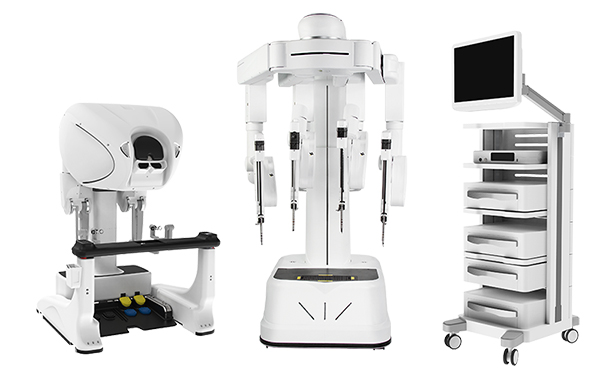As medical devices continue to evolve toward higher precision, miniaturization, and multifunctionality, HDI PCBs are becoming a core component in medical electronics, thanks to their distinctive technical advantages. With finer circuit layouts, more interlayer connections, and smaller sizes, HDI PCBs provide a solid hardware foundation for enhancing performance and expanding functions in medical devices. They play a crucial role across a wide range of medical equipment applications.

1. Diagnostic Imaging Equipment
HDI PCBs are especially critical in diagnostic imaging devices such as CT scanners, MRI systems, and ultrasound machines. These devices process massive amounts of image data, demanding extremely high signal transmission speed and stability. HDI PCBs offer excellent high-frequency performance and signal integrity, effectively reducing signal interference and transmission delay, ensure the accuracy of image data during transmission and processing.
For example, in CT scanners, detector arrays generate vast amounts of raw data. HDI PCBs enable rapid data transmission to the image processing unit, allowing the device to produce clear and accurate tomographic images within a short time, providing physicians with reliable diagnostic support. Additionally, their high-density wiring capabilities make internal circuitry more compact, reducing the device's overall size and saving installation space in clinical settings.
2. Portable Medical Devices
The rise of portable medical devices is closely tied to the adoption of HDI PCBs. As public awareness of health monitoring increases, compact and lightweight devices such as portable ECG machines, glucometers, and blood pressure monitors have become increasingly common. HDI PCBs allow complex circuit functionality within limited space by increasing wiring density and reducing spacing between components, significantly shrinking the size of the circuit boards, making these devices more portable and user-friendly.
Take the portable ECG machine, for instance. It processes signals from multiple sensors monitoring heart activity. HDI PCBs can integrate various functional modules such as signal amplification, filtering, and data conversion, allowing the device to maintain a compact form factor while still accurately monitoring heart activity and providing users with real-time health data.
3. Implantable Medical Devices
In the field of implantable medical devices, HDI PCBs are truly indispensable. Devices like pacemakers and neurostimulators must be implanted inside the human body for long periods, requiring strict standards for size, reliability, and biocompatibility. The ultra-thin and lightweight nature of HDI PCBs allows them to fit within the limited space of implantable devices, while their excellent insulation and stability ensure long-term operation inside the body with minimal risk of failure.
Take pacemakers as an example. They must precisely detect the heart's rhythm and deliver electrical pulses at the right moment to stimulate proper heartbeats. The precision circuitry on HDI PCBs ensures accurate signal sensing and transmission of these signals, thereby safeguarding the patient's life.
4. Emerging Medical Technologies
In addition, HDI PCBs also provide strong support for the intelligent and integrated development of emerging medical devices such as medical robots and remote health monitoring equipment, thanks to their high performance and compact size. Medical robots demand precise control and complex sensor data processing, HDI PCBs enable a high level of integration between control and sensor circuits, enhancing the robot’s response speed and control accuracy. Remote health monitoring devices, on the other hand, need to rapidly and accurately transmit various physiological parameters to remote terminals, HDI PCBs' high-speed signal transmission capabilities are well-suited to meet this demand.
In summary, HDI PCBs, with their unique technical advantages, play a vital role across various areas of medical devices. They drive the development of medical technology toward greater advancement, portability, and reliability, providing a solid technical foundation for the progress of the healthcare industry.
HoYoGo is an international, professional, and reliable medical PCB manufacturer. With our extensive industry experience, advanced technical equipment, and expert team, we provide high-quality PCB products and comprehensive technical support to medical device manufacturers, empowering innovation and growth in the healthcare industry. If you have any related requirements, please feel free to send us an inquiry.